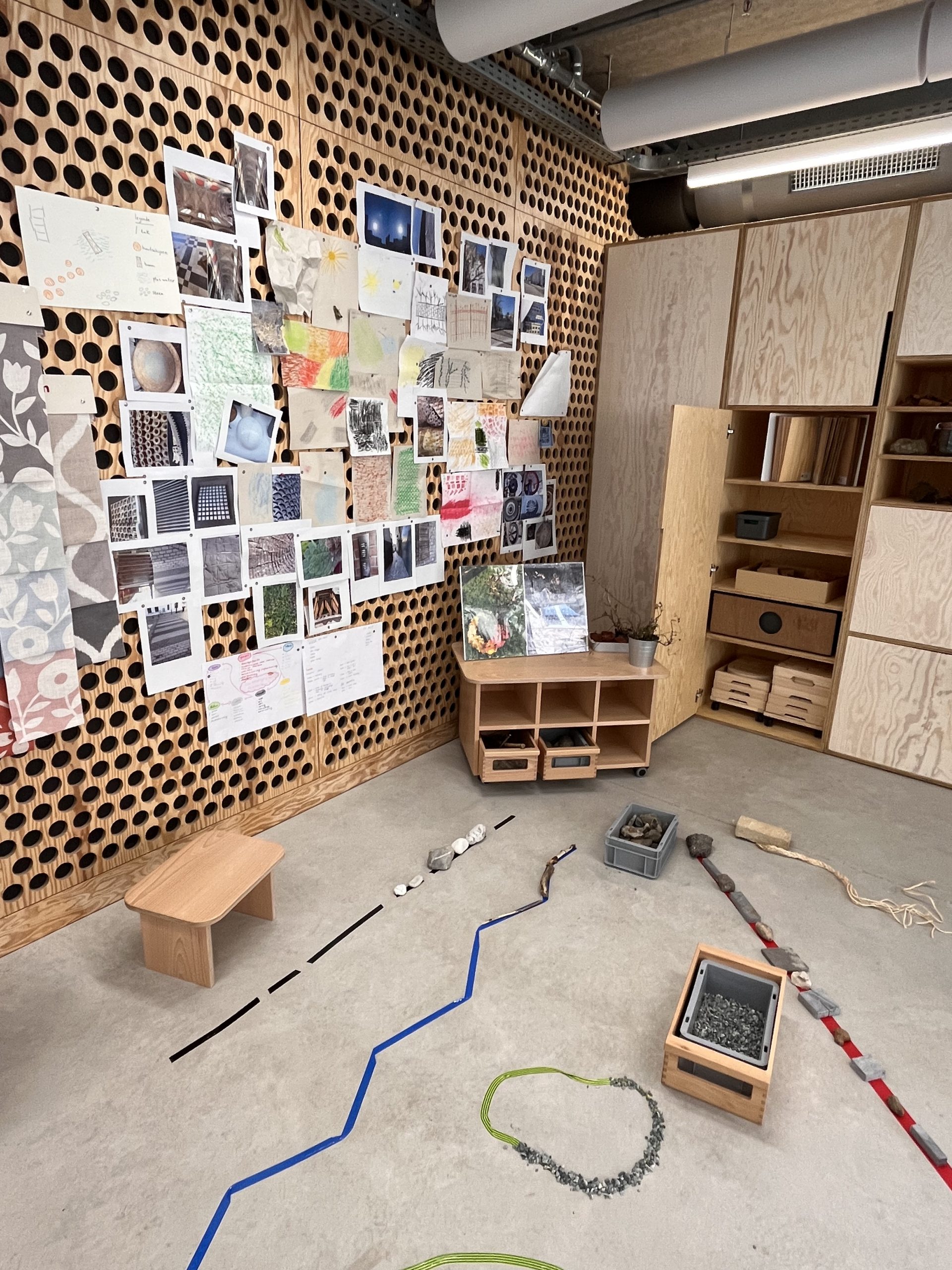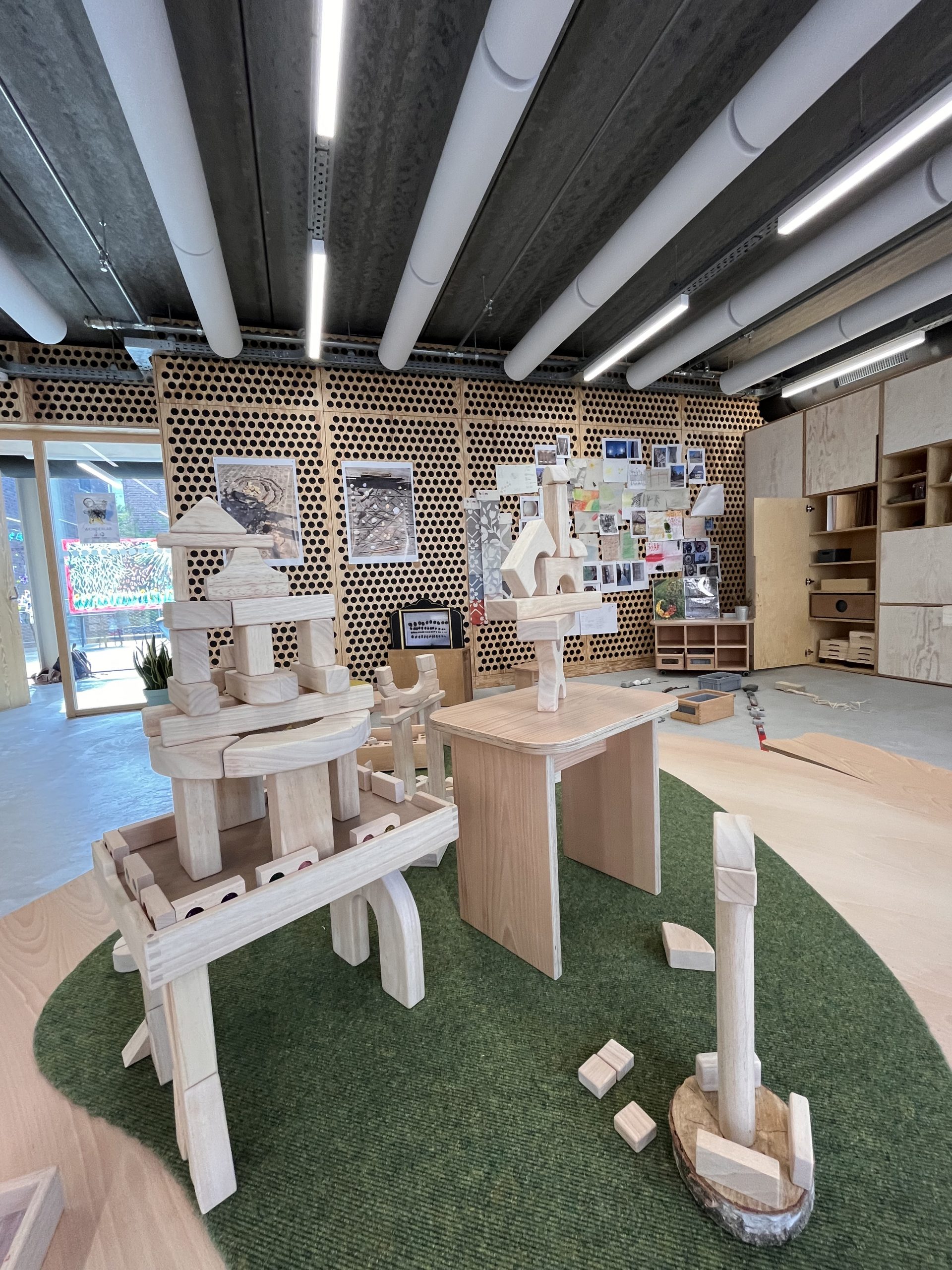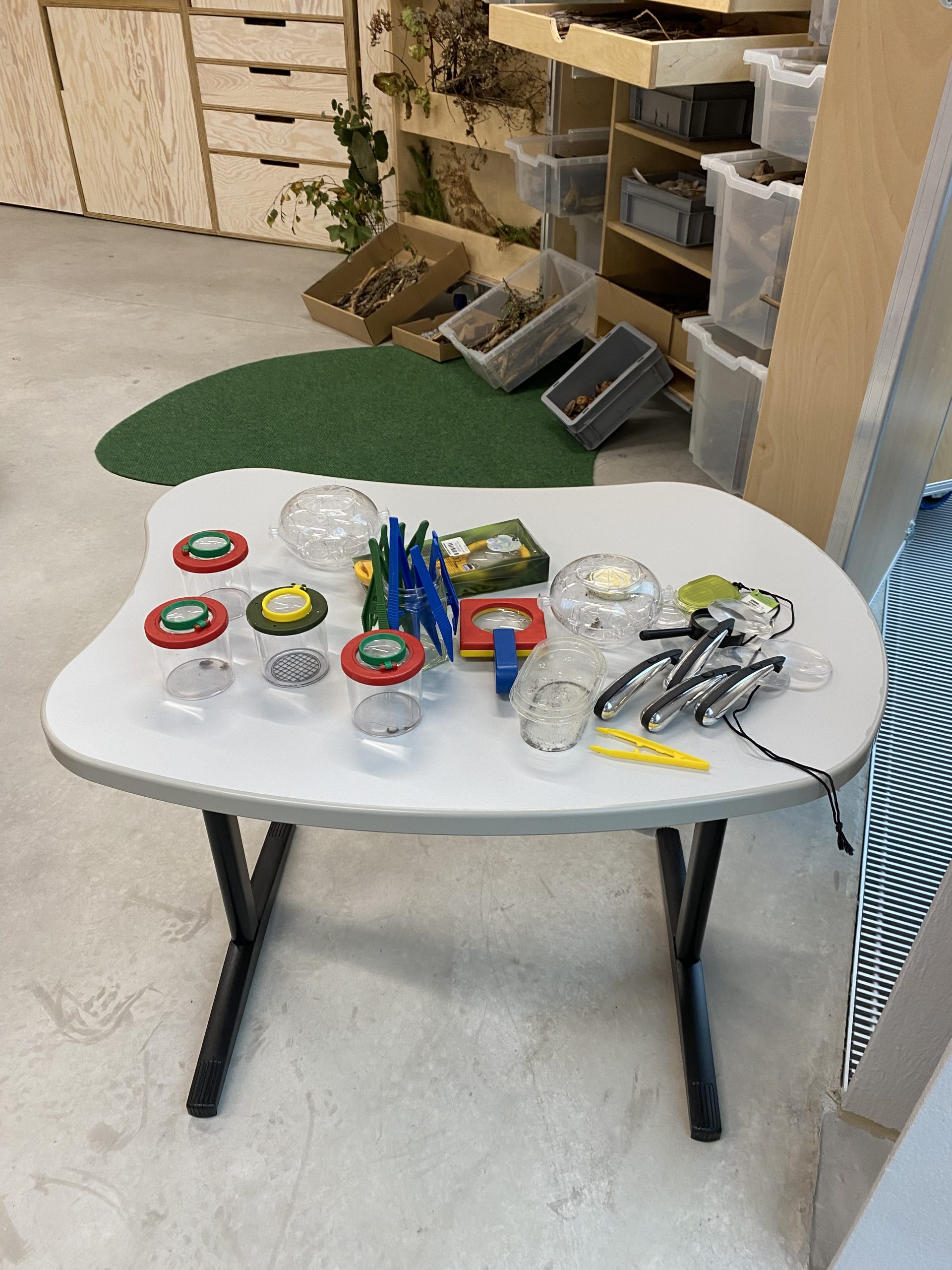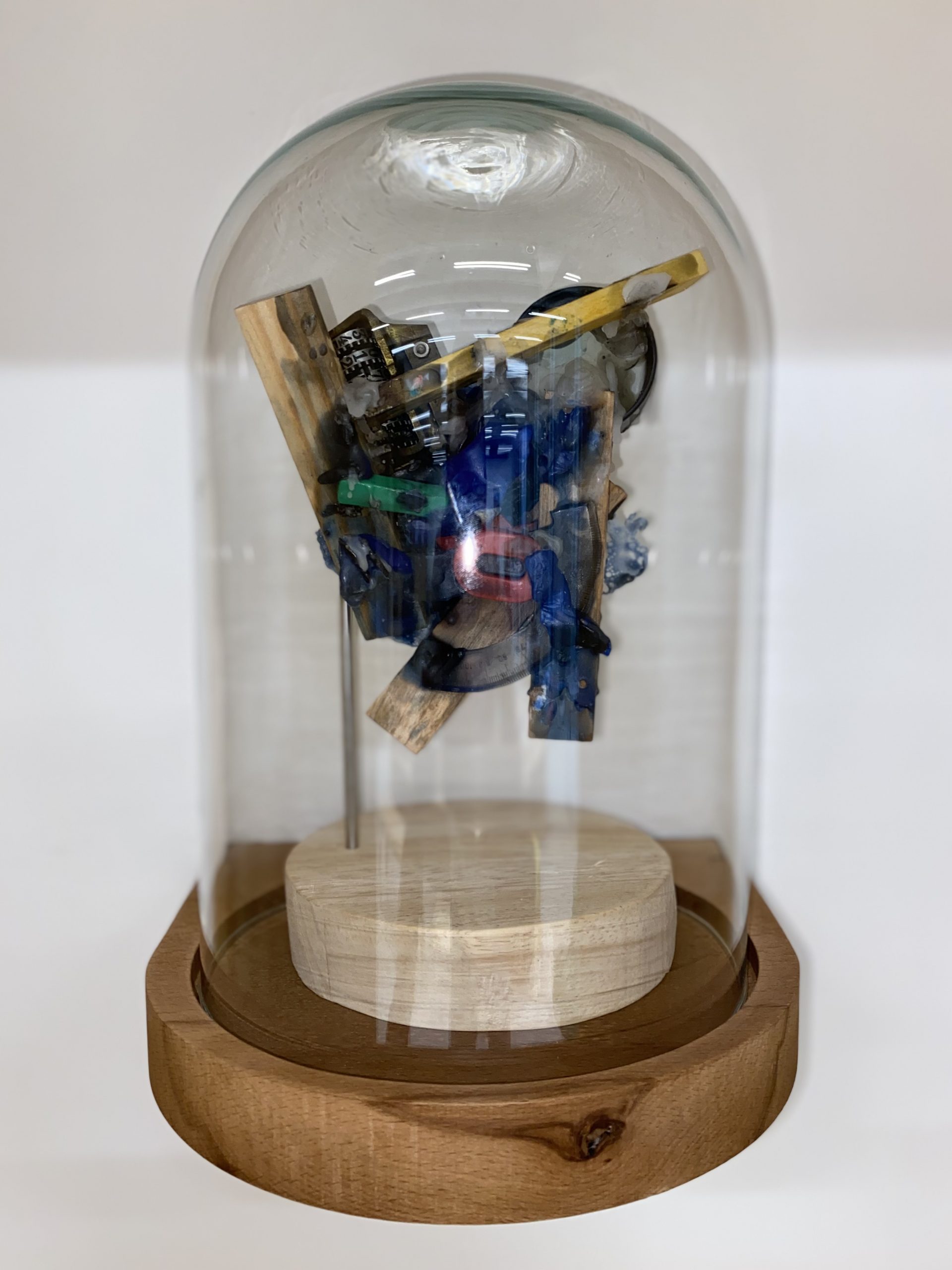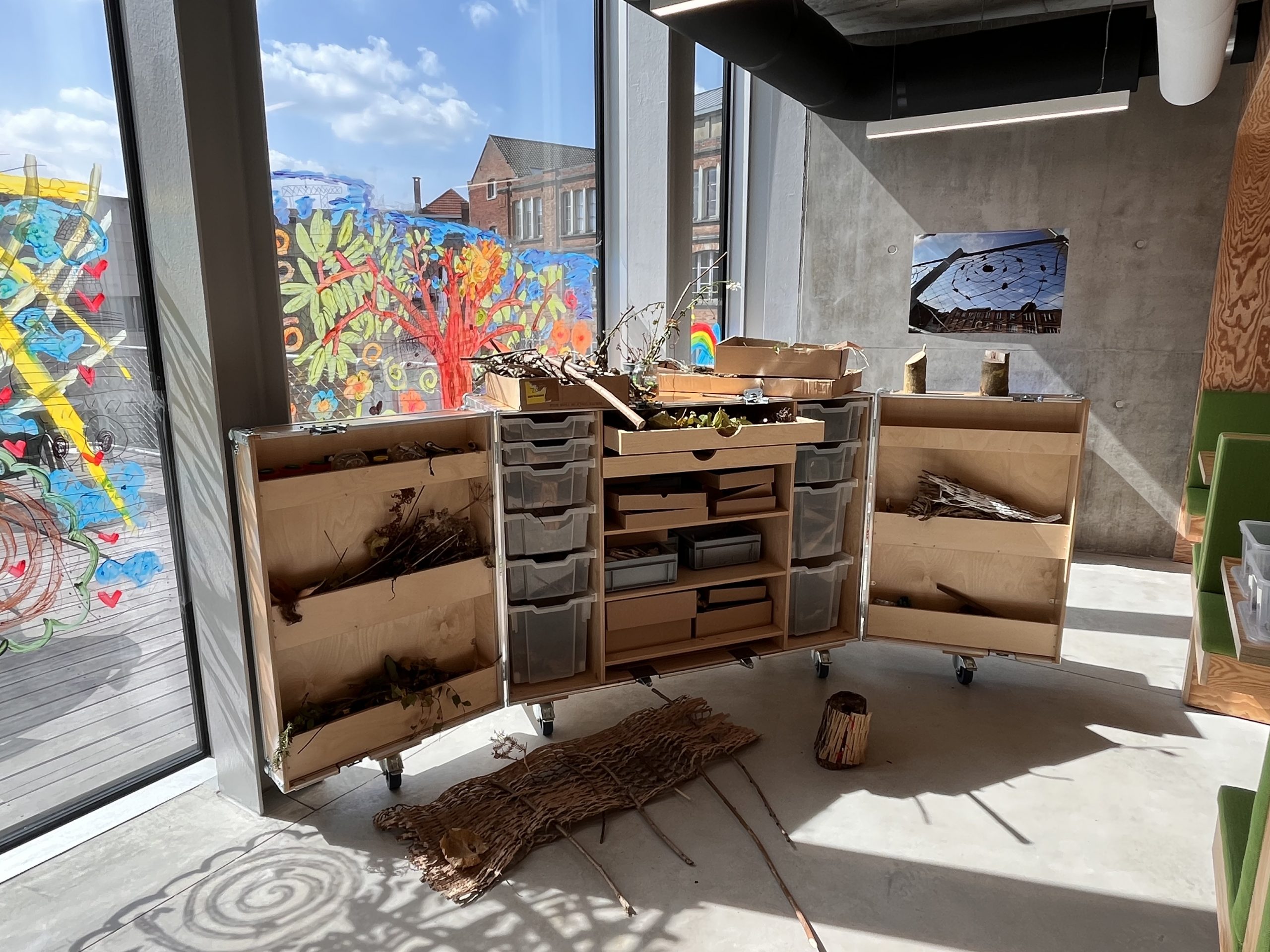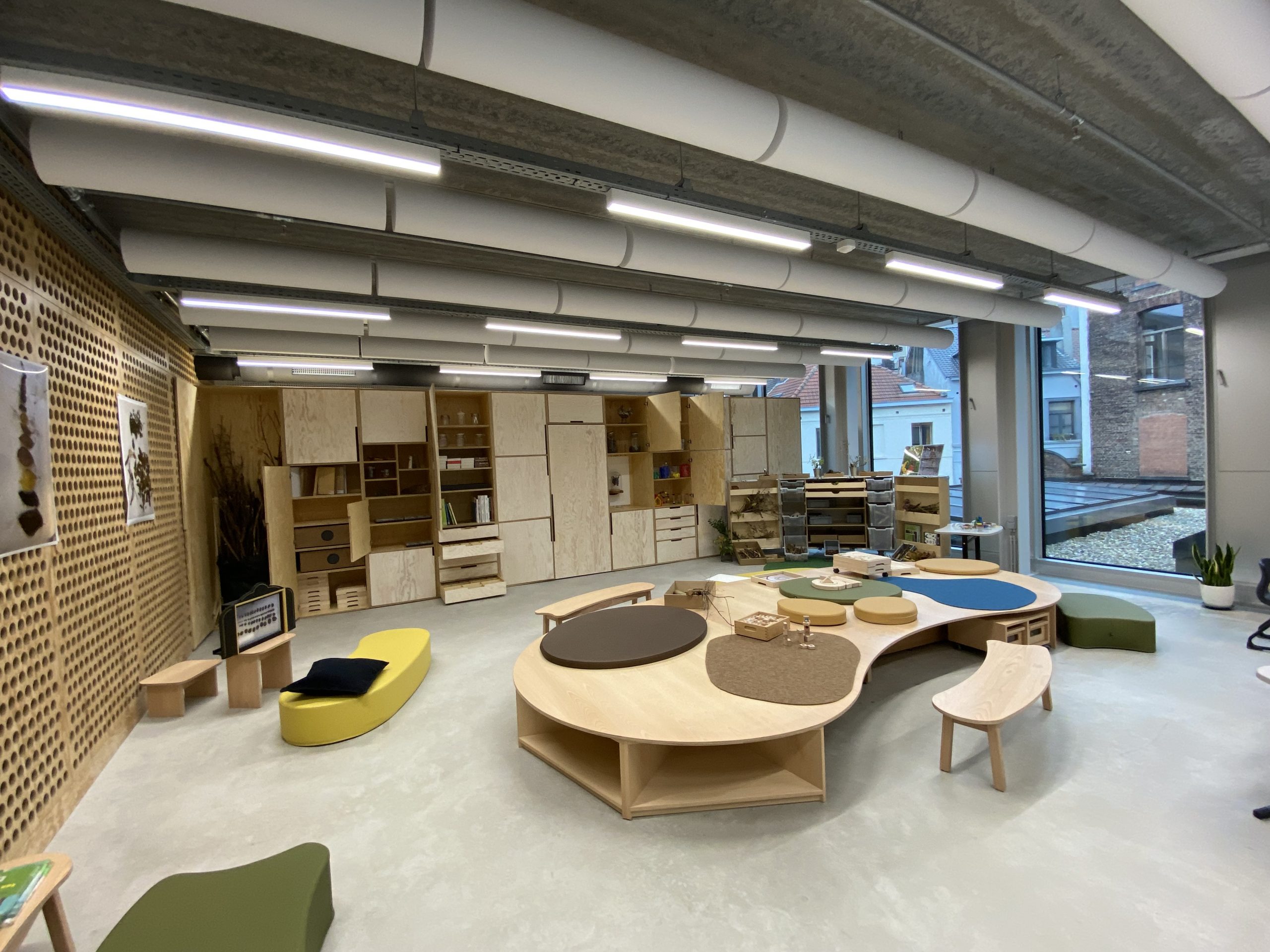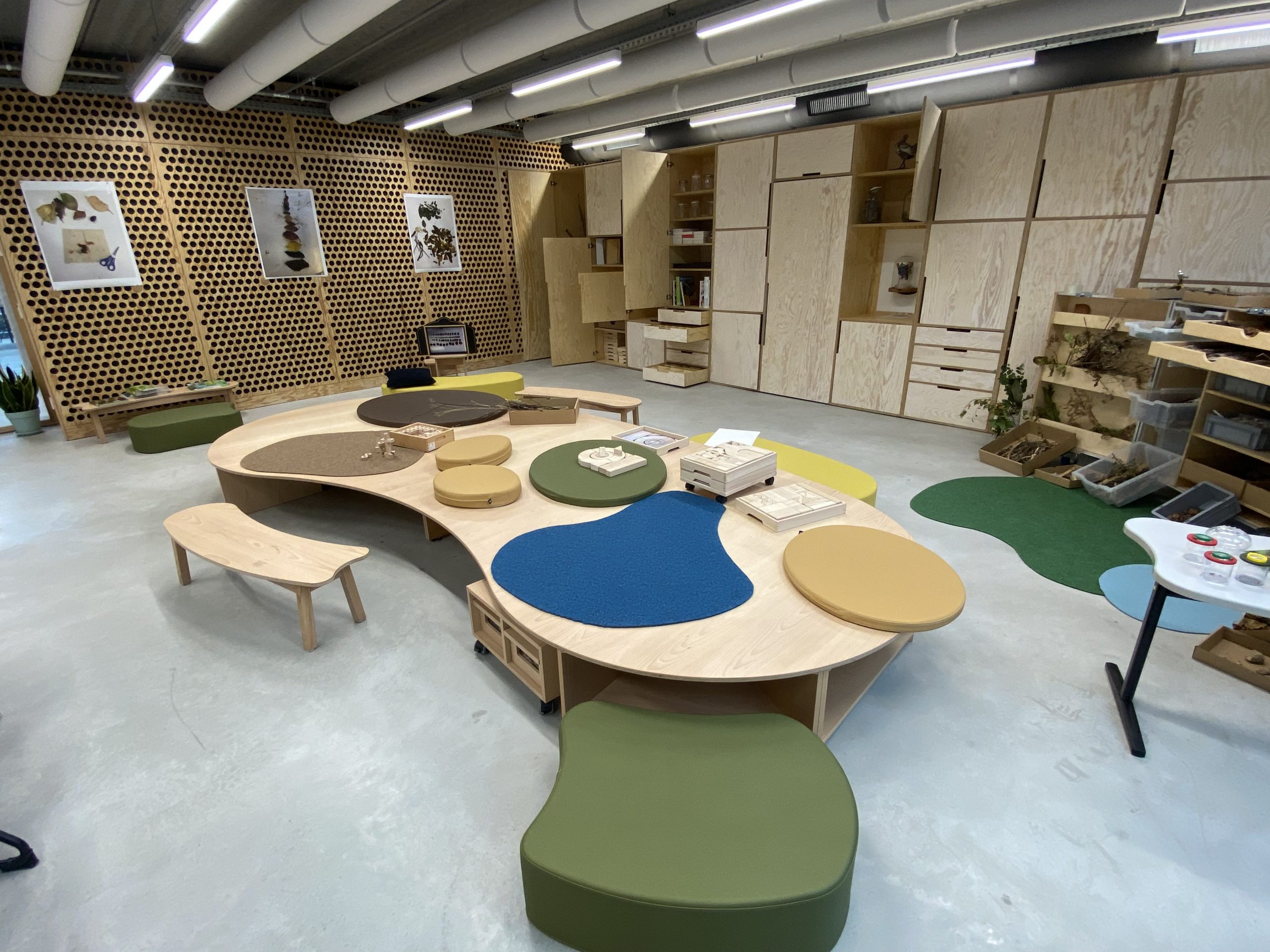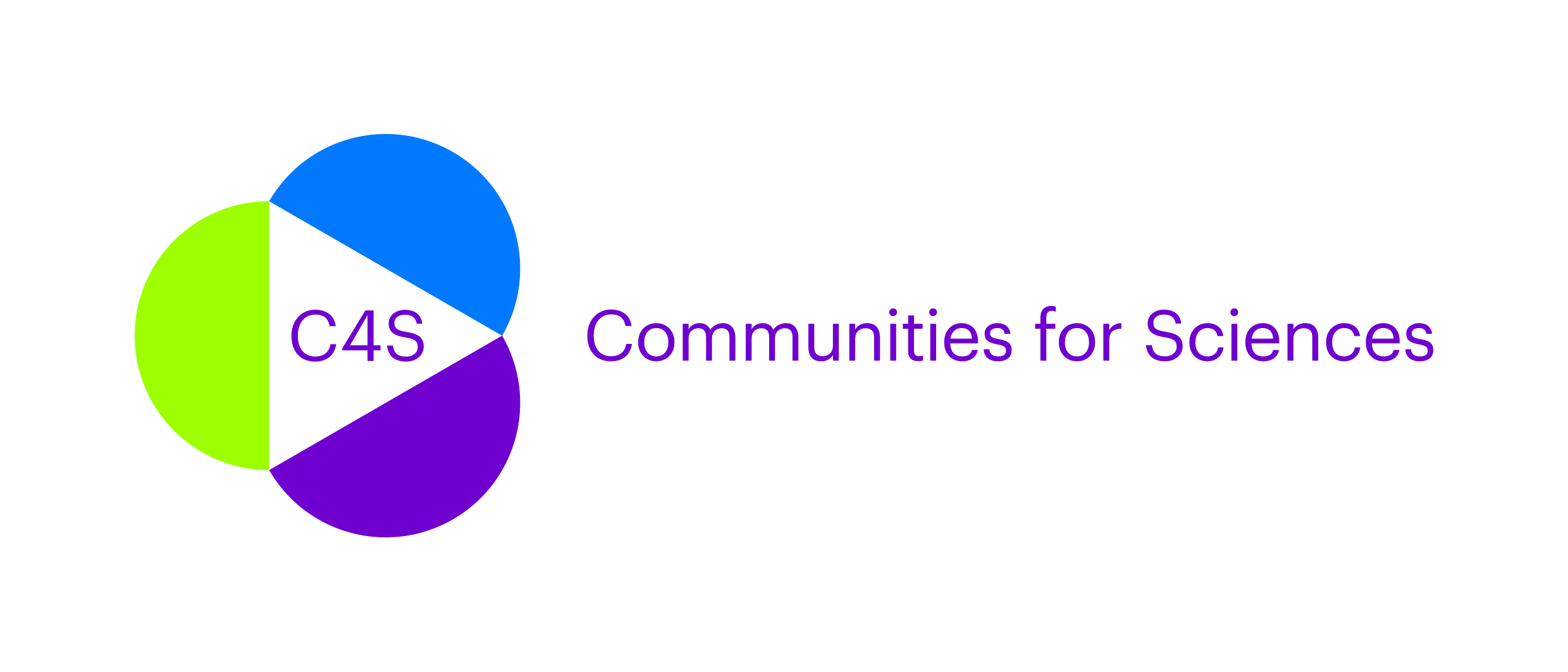BRUSSELS HUB
Experimental Play Area Kanal – Wonderlab. EhB (Erasmus Community College)
The EPA Brussels- Wonderlab is a specialised space in the new campus of the Erasmus Community College and part of the teacher training program for preschool teachers. The college is set in a very diverse and vibrant part of the Belgian capital.
In this specialised space, the idea of children playing and experimenting with open-ended, low-tech materials come to life. The research on development of play and on the investigative skills of children take place in conjunction with the training of future teachers. The pilot design will come to life in the crossover and intersection of theory, research and practice. Through play the children will investigate the different characteristics, qualities and attributes of materials and scientific phenomena. They will encounter science in a playful and inspiring hands-on manner. The space will be inviting, playful and challenging. Children will be stimulated by the materials, adults present and the documentation on the walls. This documentation will show images of exploration and discovery processes, as well as female and migrant scientists as a new inclusive visual language. As a new way of approaching and representation of science with regard to gender, age, background, ….
All these components will lead to establish a well-founded theoretical framework and deepening of the scientific approach within ECE (Early Childhood Education).
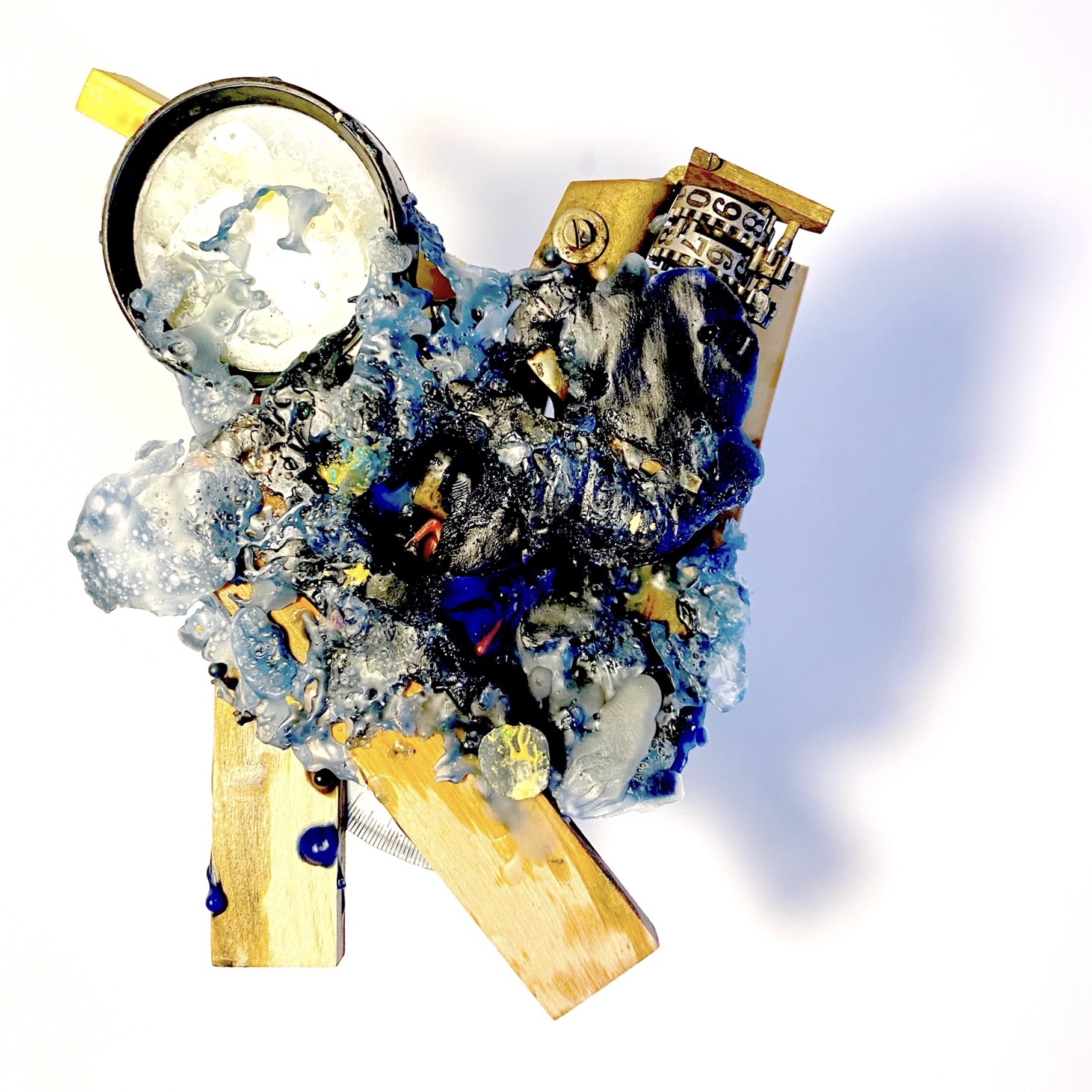
Main activites
The main activities of the Hub take place in the Wonderlab. Where students of the training program and preschool teachers of Brussels come and explore and investigate sustainable science education.
Through working with children (from migrant communities) and inviting them in the Wonderlab we are not only able to give experiences to our students but also reach preschool teachers, families and especially mothers and women. They all can discover fun ways of interacting with everyday materials in a playful and scientific way. With the parents we focus on a multiplier effect in a non-formal pedagogical setting.
Other activites
Compiling a playbox with science materials. With a carefully thought out C4S-box preschool teachers can discover with the children in a playful scientific way several phenomena f.e. magnetism.
The students compose and take a C4S-box (to the streets), families from the neighbourhood can participate in playful science activities and watch students mediate exploration, experimentation and discovery in a low-tech environment.
Students also implement scientific phenomena in their internships to bring science into the classroom.
Changing society by changing people
It is fascinating to see what is happening in a university of applied sciences and in this Wonderlab in particular. It provides insights into how the Erasmus Community College is organized: the building and the layout of the space and how they work with the students.
As a student I mainly discovered the independence of the children and how they can be focused on their play in a stimulating environment and want to search for solutions with perseverance. How a goal-oriented activity can arise from chaos, experimenting with materials and doing “just like that”. And all this is thanks to a defined set of materials for music and their desire to explore timbre and sounds.
During the final internship of the student, co-designing and developing STEAM in consultation with the student and the university of applied sciences has been an added value for both me and the preschoolers in my class.
Photo gallery
